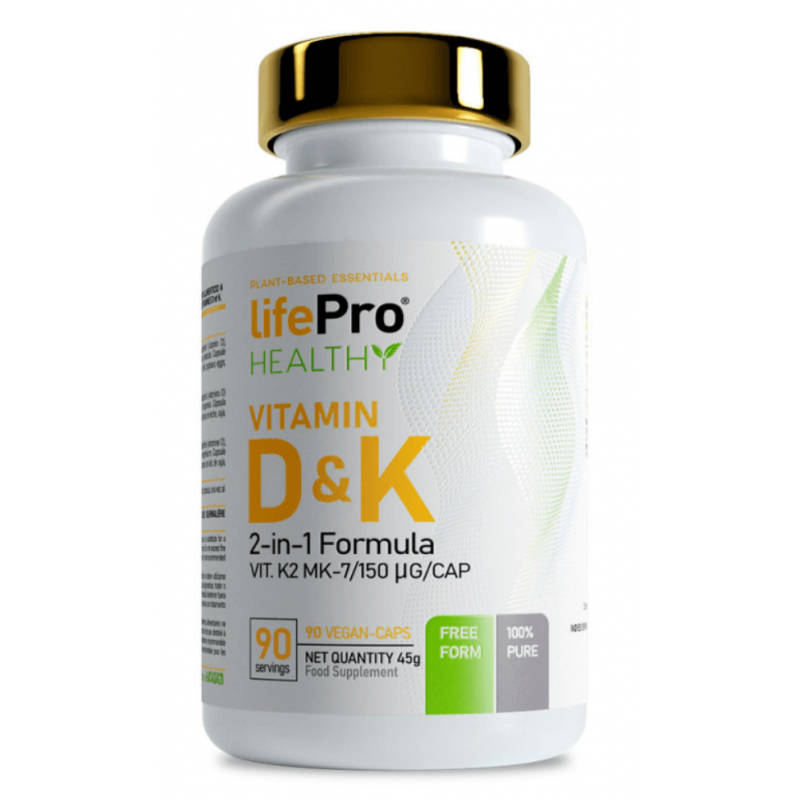- On sale!



 Secure payment
Secure payment
Secure payment through Redsys gateway.
 Fast deliveries
Fast deliveries
Deliveries in Spain in less than 24 hours and in Europe within 24 to 48 hours.
 Free delivery
Free delivery
Starting from 29,99€
 Pay with Bizum
Pay with Bizum
Pay conveniently and 100% securely with your mobile phone.
Vit D&K is a complex designed by Life Pro that provides vitamin D and vitamin K in the same capsule to facilitate a correct daily intake of two essential vitamins for the body, in a simple and easy-to-take way.
This supplement provides both vitamins in the purest form and is suitable for vegans and vegetarians.
Each pack contains 90 capsules. The recommended daily dosage is 1 capsule per day.
Vitamin D is that which we obtain mainly from the sun and is one in which people with low exposure can become deficient or deficient.
Among the functions that it performs, we can highlight:
Maintaining an adequate supply of vitamin D during pregnancy can lead to a lower risk of certain complications, such as avoiding pre-gestational diabetes or premature delivery.
It is also a vitamin of great importance to ensure the proper health and growth of the baby.
Vitamin D is directly involved in the development of children's bones, as one of its main functions is to contribute to the absorption of calcium and phosphorus. It also helps to boost their immune system.
To determine the right amount, it is advisable to consult a health specialist.
In terms of dietary recommendations, it should be consumed in the region of 10 mg.
There are few foods that contain this vitamin, mainly in oily fish (salmon, sardines, tuna…), a certain amount in egg yolk, milk, meats, and butter.
The main source of this vitamin is energy from the sun.
Vitamin Kis a fat-soluble vitamin whose main function is to help blood clotting.
As for its metabolism, being of the liposoluble type, it needs bile salts to be absorbed in the intestine and the lipoproteins VLDL and LDL for its transport.
Its storage within the body is low and is higher in the liver.
This complex specifically provides vitamin K2 and MK7 (menaquinone), the most abundant form of plant origin in which it can be found.
MK7 (menaquinone)
This complex provides specifically vitamin K2 and MK7 (menaquinone), the most abundant form of plant origin in which it can be found.
MK7 is a biologically active form of vitamin K.
Vitamin K2 is particularly relevant for activating osteocalcin, a molecule necessary for depositing calcium in the bones and which has a synergistic effect with vitamin D, in bone formation and in the prevention of osteoporosis, present in this complex.
MK7 is a form of vitamin K that is biologically active.
Among the nutritional recommendations, the daily dose should be around 90 µg, varying according to sex, age, and physiological state.